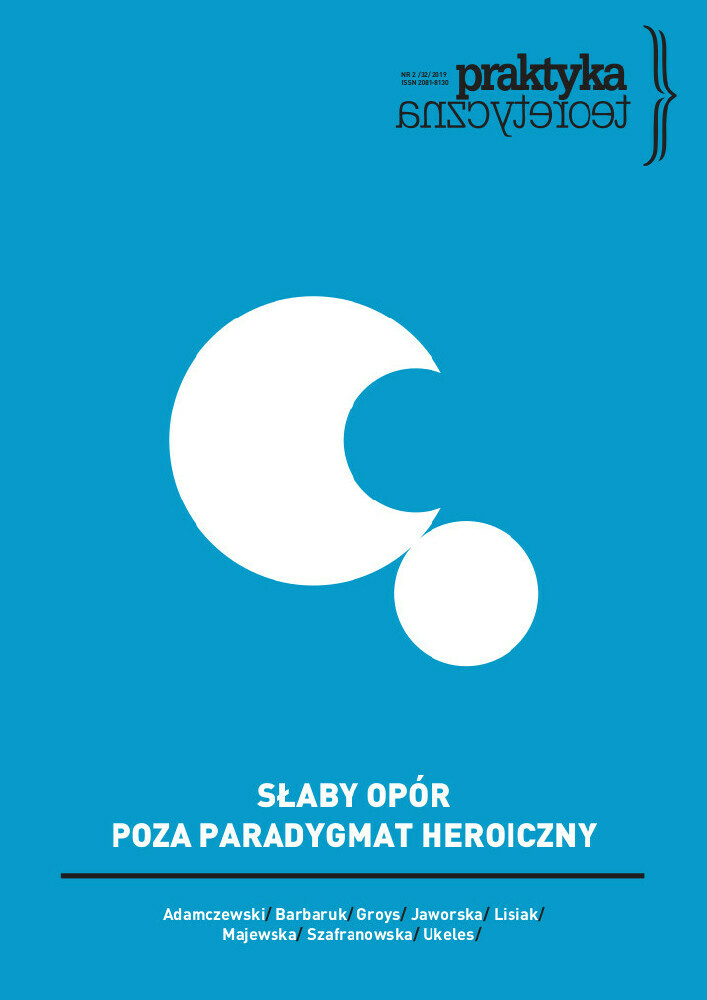Abstract
Girlhood‟s political potential does not lie in the power of individual girls, however magnificent, but in acknowledging the commonalities and multiplicities of all girls‟ experiences. Rejecting the individualistic “girl power” paradigm opens up new, sometimes contradictory narrations and representations of contemporary girlhood. This non-heroic approach to girlhood reveals not only the intricate workings of exclusion mechanisms, but also the various inclusive tactics and resistance strategies at work. Engaging with the concepts of counterpublics, the gendered right to the city, and feminist theory more broadly, I look closely at selected examples of girl resistance from popular culture to demonstrate how girls‟ interventions in urban places usually coded as masculine can subvert cultural, gender, racial, and class codes, reappropriate narrations about themselves, and execute their right to the city. Even if some of the gestures and tactics I discuss in the paper may seem too mild to have any political power, I propose that it is exactly such unassuming forms of resistance that promise real change and deserve our urgent attention.References
Adetiba, Elizabeth i Tarana Burke. 2017. „Tarana Burke Says #MeToo Should Center Marginalized Communities”: https://www.thenation.com/article/tarana-burke-says-metoo-isnt-just-for-white-people/
Anderson, Sini (reż). 2013. The Punk Singer.
Bagieu, Pénélope. 2018. Tupeciary: O kobietach, które robią to, co chcą, tłum. Agnieszka Pączka-Torelli i Anna Pączka. Warszawa: bęc zmiana.
Baumgardner, Jennifer, i Amy Richards. 2000. Manifesta: Young Women, Feminism, and the Future. Nowy Jork: Farrar, Straus and Giroux.
Berman, Marshall. 2017. „Take it to the Streets: Conflict and Community in Public Space.” W Modernism in the Streets: A Life and Times in Essays, red. Marcus, David, i Shellie Sclan. Londyn: Verso.
Bess, Gabby. 2015. „Alternatives to Alternatives: the Black Grrrls Riot Ignored.” https://broadly.vice.com/en_us/article/9k99a7/alternatives-to-alternatives-the-black-grrrls-riot-ignored.
Doshi, Tishani. 2018. Girls Are Coming Out of the Woods. Hexham: Bloodaxe Books.
Favilli, Elena, i Francesca Cavallo. 2017. Opowieści na dobranoc dla młodych buntowniczek, tłum. Ewa Borówka. Katowice: Debit.
Fenster, Tovi. 2005. „The Right to the Gendered City: Different Formations of Belonging in Everyday Life.” Journal of Gender Studies 14(3): 217–31.
Gill, Rosalind. 2007. „Postfeminist Media Culture: Elements of a Sensibility” European Journal of Cultural Studies 10. 2: 147–166.
Gonick, Marnina. 2006. „Between Girl Power and Reviving Ophelia: Constituting the Neoliberal Girl Subject.” NWSA Journal 18.2: 1–23.
Harvey, David. 2003. „The Right to the City.” International Journal of Urban and Regional Research 27.4: 939-941.
Harvey, David. 2013. Rebel Cities: From the Right to the City to the Urban Revolution. Londyn: Verso.
Hernández, Daisy. i Bushra Rehman. 2002. Colonize This!: Young Women of Color on Today’s Feminism. New York: Seal Press.
Juck. 2013-. https://www.juck.org
Klein, Naomi. 2000. No Logo: Taking Aim at the Brand Bullies. Toronto: Vintage Canada.
Lefebvre, Henri. 1996. Writings on Cities, tłum. i red. Kofman, Eleonore i Elizabeth Lebas. Londyn: Blackwell.
Majewska, Ewa. 2018. Kontrpubliczności ludowe i feministyczne: Wczesna „Solidarność” i Czarne Protesty. Warszawa: Instytut Wydawniczy Książka i Prasa.
Majewska, Ewa. 2017. „Prekariat i dziewczyna: Fetyszyzm towarowy i emancypacja dziś.” W Tramwaj zwany uznaniem: Feminizm i solidarność po neoliberalizmie. Warszawa: Instytut Wydawniczy Książka i Prasa.
Marcus, Sara. 2010. Girls to the Front: The True Story of the Riot Grrrl Revolution. Nowy Jork: Harper Collins.
Marcuse, Peter. 2009. „From critical urban theory to the right to the city.” City 13.2-3: 185-197. DOI: https://doi.org/10.1080/13604810902982177
Massey, Doreen. 1994. Space, Place and Gender. Cambridge: Polity Press.
Mayer, Margit. 2009. „The „Right to the City‟ in the context of shifting mottos of urban social movements.” City 13.2-3: 362-374. DOI: https://doi.org/10.1080/13604810902982755
McGuire, Danielle L. 2018. „The Maid and Mr. Charlie: Rosa Parks and the Struggle for Black Women‟s Bodily Integrity.” W Verso Report, Where Freedom Starts: Sex, Power, Violence, #MeToo. London: Verso.
McRobbie, A. (2015) Be Creative: Making a Living in the New Culture Industries. London: Wiley.
McRobbie, Angela i Jenny Garber. 1991. „Girls and Subcultures.” W McRobbie, Angela, Feminism and Youth Culture: From ‘Jackie’ to ‘Just Seventeen’. Basingstoke: Macmillan. 1–15.
Purcell, Mark. 2002. „Excavating Lefebvre: the right to the city and its urban politics of the inhabitant.” Geojournal 58: 99-108.
Roy, Arundhati. 2012. „Arundhati Roy speaks out against Indian rape culture,” https://www.channel4.com/news/arundhati-roy-speaks-out-against-indian-rape-culture
Schilt, Kristen. 2003. „„A Little Too Ironic‟: The Appropriation and Packaging of Riot Grrrl Politics by Mainstream Female Musicians.” Popular Music and Society 26.1: 5-16
Sciamma, Celine (reż.). 2014. Bande de filles Bande de filles.
Solnit, Rebecca. 2016. „City of Women: The Power of Names.” W Solnit, Rebecca, i Joshua Jelly-Schapiro, Nonstop Metropolis: A New York City Atlas. Oakland: University of California Press. 85–90.
Vacchelli, Elena i Kofman, Eleonore. 2018. „Towards an Inclusive and Gendered Right to the City.” Journal of Gender Studies 17: 1–3.
Verso Report. 2018. Where Freedom Starts: Sex, Power, Violence, #MeToo. London: Verso.
Walker, Rebecca. 1995. To Be Real: Telling the Truth and Changing the Face of Feminism. New York: Anchor.
License
“Theoretical Practice” seeks to put into practice the idea of open access to knowledge and broadening the domain of the commons. It serves the development of science, thinking and critical reflection. The journal is published in open-access mode under the CC-BY-NC-SA 4.0 license (detail available here: http://creativecommons.org/licenses/by-nc-sa/4.0/). Articles published in the journal may be freely distributed, stored, printed and utilized for academic and teaching purposes without restrictions.
They should not be, however, used for any commercial purposes or be reconstructed into derivative creations. Access to the journal may not be limited or offered for a fee by any third party.
Prospective authors are obliged to fill in, sign and send back the publishing contract compliant with the CC licencing. [PL.pdf, PL.doc, EN.pdf,EN.doc].
According to this contract, authors grant the journal a non-exclusive right to publish their work under the creative commons license (CC-BY-NC-SA 4.0) without any financial obligation on both sides of the contract.
Before submission authors should make sure that derivative materials they use are not protected by copyright preventing their non-commercial publication. Authors are responsible for any respective copyright violations.
